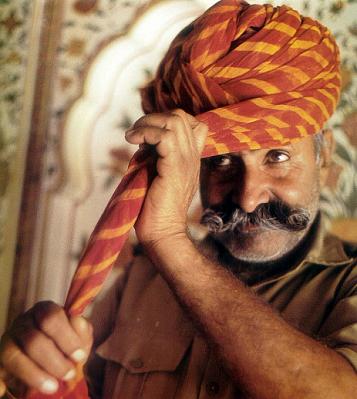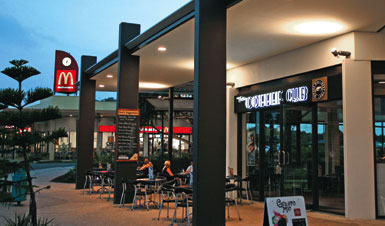|
Climate: Jaipur has high temperatures in winters The
summers have a mean maximum of 42 degrees C and a mean minimum
of 23.8 degrees C, while the winter mean maximum is 22 degrees
Ca and the mean minimum 6.3 degrees C.
Languages Spoken :- Hindi, Rajasthani and English to a
small degree are commonly spoken In hotels and restaurants,
staff speak English as well as Hindi. One can easily
communicate with a minimum knowledge of Hindi or English.
Tipping
Tipping is common for porters in hotels as also the stewards
and bearers and tourist guides, though it is not the practice
with taxi and auto drivers. The standard amount in hotels and
restaurants in 10% of the total bill.

Dressing : - The traditional dress like the skirt and
top are woven by women with traditional taste while the saree
and shalwar kameez is also common with women. Men wear
trousers and shirts. Simply dressed women are hound to be
stared at. Wear informal, loose clothes during the day and you
won't feel uncomfortable. Smart, casual clothes will do for
eating out in the evening or visiting friends.
Photography : - Photography is not permitted at the
airport, military installations, places of worship and other
places where such notices are put up.

Buying Liquor : - Jaipur observes dry days on national
holidays. Liquor outlets are there in all markets run by
private owners. All big hotels serve liquor and so do several
restaurants and pubs. Dry days are not applicable to hotels
and restaurants.

Food : - Rajasthani cooking was influenced by the war
like lifestyle of its inhabitants and the availability or
ingredients in this region. Food that could last for several
days and could be eaten without heating was preferred, more
out of necessity than choice. Scarcity of water, fresh green
vegetables have had their effect on cooking. Dried lentils,
beans from indigenous plants like sangri, ker etc. are
liberally used. Gram flour is a major ingredient here and is
used to make some of the delicacies like gatta ki sabzi,
pakodi; powdered lentils are usedfor mangodi, papad. Bajra and
corn are used all over the state for preparation of rabdi,
khichdi and rotis. Various chutney are made from locally
available spices like turmeric, coriander, mintand garlic.
Perhaps the best known Rajasthani food is the combination of
dal, bati and churma but for the adventurous traveler, willing
to experiment, there is a lot of variety available and in
Jaipur Ghewar is a popular dish. Aside from Indian, major
international cuisines are available in hotels and
restaurants. Most of the hotels also serve Continental food.
Bars close at 11 p.m., though most restaurants stay open till
midnight, most of the five star hotels have 24 hour coffee
shops.
Insects, diseases
Mosquitoes are common in summer and malaria and some water
borne diseases can affect those who are not careful with the
water they drink. It is advisable to carry mosquito repellant
creams and other such devices that can keep this insect at
bay.
Water and Electricity
Water is a problem in summer, though it is not the case in
winter. It is advisable to purchase mineral water available in
bottles which are not very expensive by world standards.
Electricity is on the 220 volts supply and power shutdowns in
the peak of summer and very common. However most restaurants
and hotels have installed generators and they normally do not
face any problems of the kind.
Banking Hours
Public Sector banks are open from 1000 hrs to 1400 hrs. from
Monday to Friday and up to 12 noon on Saturdays. Some private
Indian banks are also open 8.00 am to 8.00 pm and many have
the ATM facilities around the city. There are several foreign
banks located in and around commercial areas.

Moving Around
Transport Jaipur has three major modes of transport buses,
tempos, mini buses, three wheeler taxi and autorickshawas.
There are also unmet red tourist taxis whose stands are
situated mainly at all the gates on M.I. Road. Hotels and
travel agents can also arrange for taxis.
The buses ply on set routes and charge a standard fare. One
should insist on paying the autorickshaw driver through meter
only. For luggage one has to pay an additional rupee for one
piece of luggage. The three wheelers can also be hired for a
day on an agreed fare of Rs. 35 to 40 for 8 hours. The
rickshaws have no set fare The rate however is Rs. 5 to 7 for
the first kilometer, Rs. 10 for the second, Rs. 15 for the
third kilometer and Rs. 25 for the third kilometer and Rs. 25
to 28 for the eighth kilometre. |





